How to Get Quality Backlinks: The Ultimate Guide for Indie Makers
how to get quality backlinks: You did it. You poured your heart, soul, and countless late nights into building your product. You hit "launch," shared it — learn
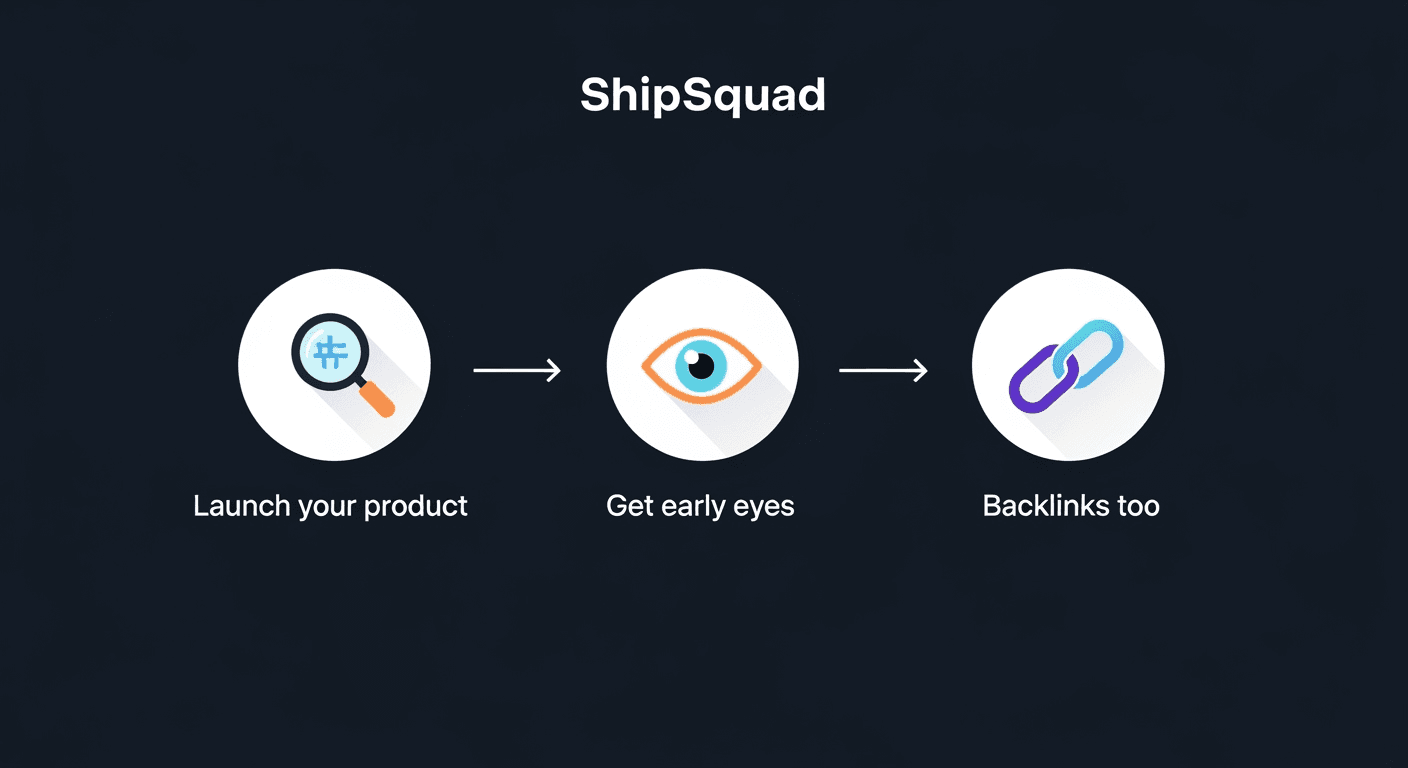
You did it. You poured your heart, soul, and countless late nights into building your product. You hit "launch," shared it on Twitter, and... crickets. If this sounds familiar, you're not alone. The hardest part of launching isn't building the product; it's getting those first crucial sets of eyes on it. For indie makers and early-stage founders, this initial struggle for visibility, feedback, and validation is a shared rite of passage. But what if there was a way to not only get seen but also build a powerful, long-term asset for your business at the same time? This is where learning how to get quality backlinks comes in, and it's a total game-changer.
Forget everything you think you know about spammy, old-school SEO. We're talking about earning genuine, authoritative links that tell search engines your site is the real deal. These are the kinds of links that drive targeted traffic, build your brand's credibility, and lay the foundation for sustainable growth—all without a hefty marketing budget.
This guide is designed specifically for you: the solo builder, the indie hacker, the early-stage founder. We'll break down actionable, low-cost strategies on how to get quality backlinks and turn your launch from a silent event into a resounding success.
Table of Contents
- First, What Exactly Are Quality Backlinks (And Why Do They Matter More Than Ever)?
- It's Not About Quantity, It's About Trust
- The Real ROI of Quality Backlinks
- The Foundational Steps: Before You Even Ask for a Link
- Create "Link-Worthy" Assets
- Nail Your On-Page SEO
- Actionable Strategies on How to Get Quality Backlinks (Without a Big Budget)
- Strategy 1: Leverage Community-Driven Launch Platforms
- Strategy 2: The Digital PR Approach for Makers
- Strategy 3: Strategic Guest Posting for Real Engagement
- Strategy 4: The Power of Niche Edits (Link Insertions)
- Strategy 5: Master Broken Link Building
- Strategy 6: Create Your Own Original Research or Data
- A Comparison of Backlink Strategies for New Products
- The Mindset Shift: From "Building Links" to "Earning Links"
- Putting It All Together: Your First Launch with ShipSquad
- Recommended Videos
- Conclusion: Your Journey to Authority Starts Now
- Frequently Asked Questions (FAQs)
First, What Exactly Are Quality Backlinks (And Why Do They Matter More Than Ever)?
Before we dive into the "how," let's get crystal clear on the "what" and the "why." Think of the internet as a giant, interconnected city. A backlink is simply a road from one building (website) to another. Search engines like Google act as the city planners, and they see these roads as votes of confidence.
It's Not About Quantity, It's About Trust
In the early days of the internet, any road would do. The more links you had, the more important your site seemed. Today, the city planners are much, much smarter. They don't just count the roads; they evaluate their quality.
A link from a trusted, high-authority site (like a major industry publication) is like a superhighway directing traffic and trust to your site. A link from a spammy, low-quality directory is like a pothole-filled back alley that nobody trusts. It's not a numbers game anymore; it's a trust game. Quality backlinks are defined by two key factors:
- Authority: Links from established, well-respected websites in your field carry more weight. Tools like Ahrefs (https://ahrefs.com/) and Moz (https://moz.com/) have metrics like Domain Rating (DR) and Domain Authority (DA) to measure this, but a simple gut check works too: is this a site you'd trust for information?

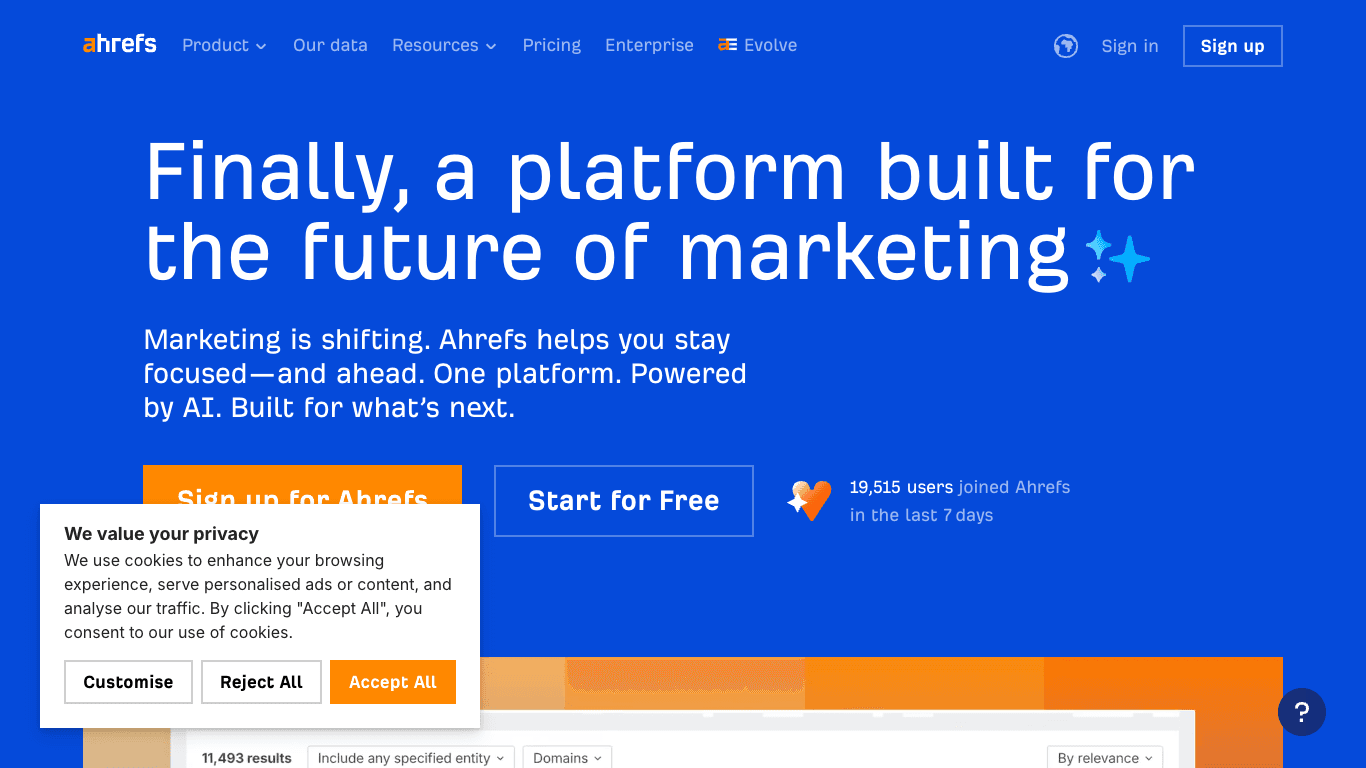
- Relevance: A link from a popular fishing blog is fantastic if you sell fishing lures. If you're selling SaaS software for accountants, not so much. The more relevant the linking site is to your own, the more valuable the backlink.
The Real ROI of Quality Backlinks
So, why go through all this effort? Because the payoff is huge, especially for a new product.
- Improved Search Engine Rankings: This is the big one. Quality backlinks are one of the most powerful signals to Google that your content is credible and valuable, directly leading to higher rankings. In fact, the top-ranking page on Google has, on average, 3.8 times more backlinks than the pages ranking in positions 2-10.
- Valuable Referral Traffic: When someone clicks a link to your site from a relevant article or blog post, they aren't just a random visitor. They are pre-qualified and interested in what you have to offer, leading to higher engagement and conversion rates.
- Enhanced Brand Authority and Credibility: Being linked to by reputable sources positions your brand as a trusted authority in your niche. This validation is priceless during a product's early stages.
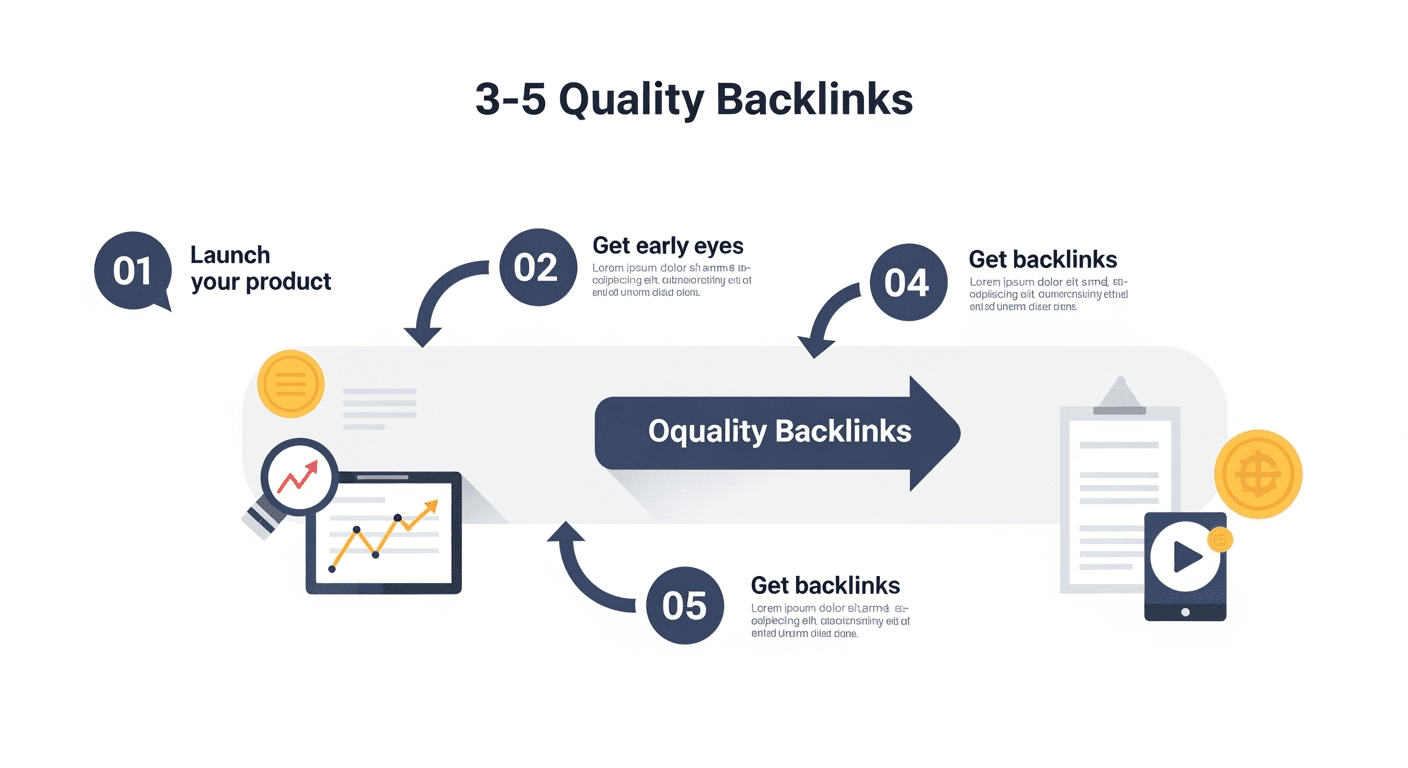
The Foundational Steps: Before You Even Ask for a Link
You wouldn't invite guests over to a messy house, right? The same principle applies to link building. Before you start your outreach, you need to ensure your own site is in order.
Create "Link-Worthy" Assets
People don't link to mediocre content. They link to exceptional, valuable resources that make them look good for sharing. This is what we call a "link-worthy asset." For an indie maker, this could be:
- Your Product Itself: If you've built a unique, free tool or a novel solution to a common problem, the product page can be your primary linkable asset.
- An Ultimate Guide: Create a comprehensive, long-form guide that covers a topic in your niche better than anyone else. Research shows that long-form content receives an average of 77.2% more backlinks than short articles.
- Original Research or Data: Even a simple survey of your early users or an analysis of a public dataset can become a highly linkable asset. Journalists and bloggers love to cite original data.
- A Free Template or Checklist: Provide a downloadable resource that solves a specific pain point for your target audience.
The key is to create something so genuinely useful that other creators in your space will want to reference it.
Nail Your On-Page SEO
Your website needs to be technically sound for search engines to crawl and understand it. This doesn't have to be complicated. Focus on the basics:
- Fast Loading Speed: No one will stick around for a slow site.
- Mobile-Friendly Design: Ensure your site looks great and is easy to use on all devices.
- Clear and Logical Site Structure: Make it easy for both users and search engines to find your most important pages.
- Compelling Title Tags and Meta Descriptions: These are your site's "ad" in the search results, so make them count.
Getting these fundamentals right ensures that when you do earn a quality backlink, you get the maximum SEO benefit from it.
Actionable Strategies on How to Get Quality Backlinks (Without a Big Budget)
Alright, your house is in order. Now it's time to invite people over. Here are some of the most effective, budget-friendly strategies for indie makers wondering how to get quality backlinks.
Strategy 1: Leverage Community-Driven Launch Platforms
As a new maker, your biggest challenge is the cold start problem: you have no audience. Traditional launch sites can be intimidating or expensive. This is where community-driven platforms come into play.
Imagine a space designed specifically for indie makers to launch their products, get discovered by a curious audience of early adopters, and get feedback. When these early adopters—many of whom are bloggers, developers, and creators themselves—discover a great new product, they often share it on their own sites or social media, leading to your first, most natural backlinks.
This approach is less about "building" links and more about "earning" them by creating something awesome and sharing it with a receptive community. It solves the visibility and validation problem while kickstarting your SEO. Platforms like Indie Hackers (https://www.indiehackers.com) and Reddit (https://www.reddit.com) communities can be great for this.
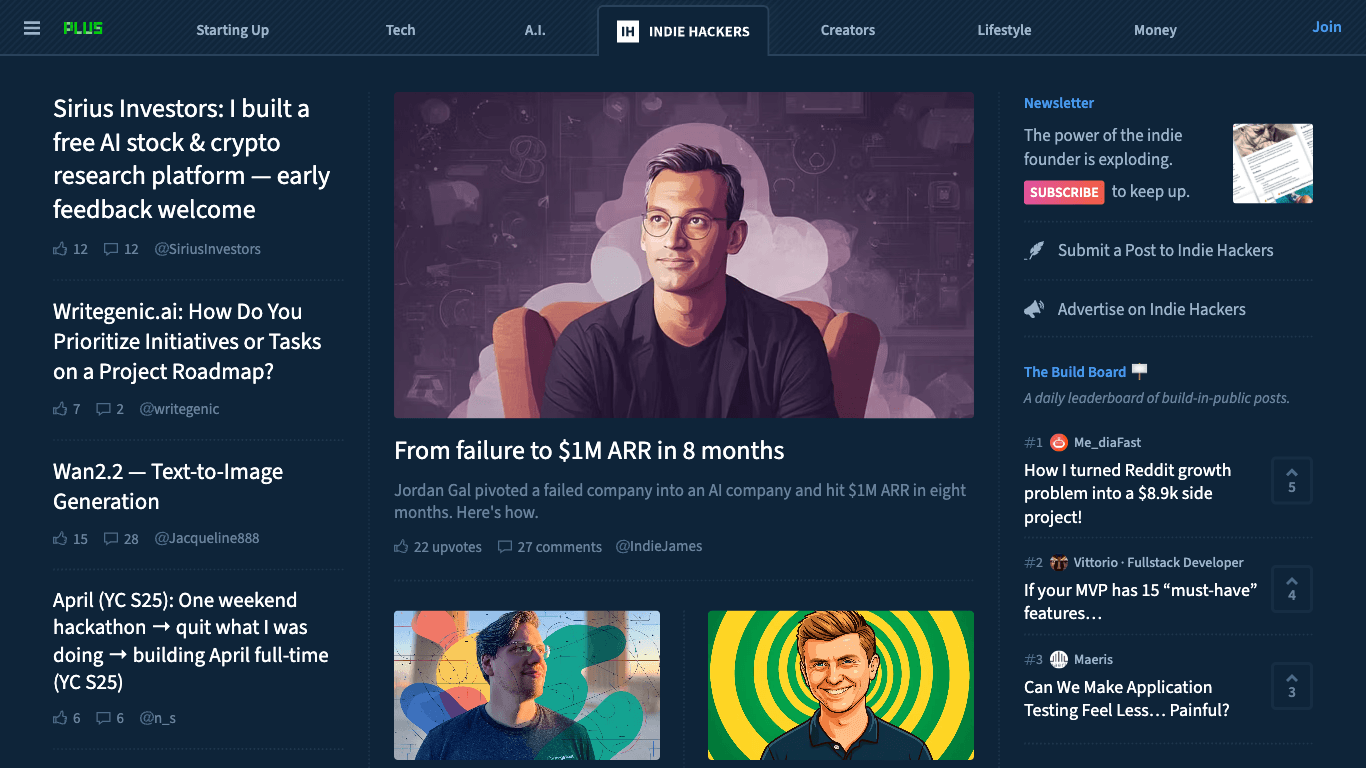
Strategy 2: The Digital PR Approach for Makers
Digital PR is about getting your brand mentioned in online publications, and it's not just for big companies with massive budgets. For solo founders, services like Help a Reporter Out (HARO) (https://www.helpareporter.com/) and Qwoted (https://www.qwoted.com/) are goldmines.
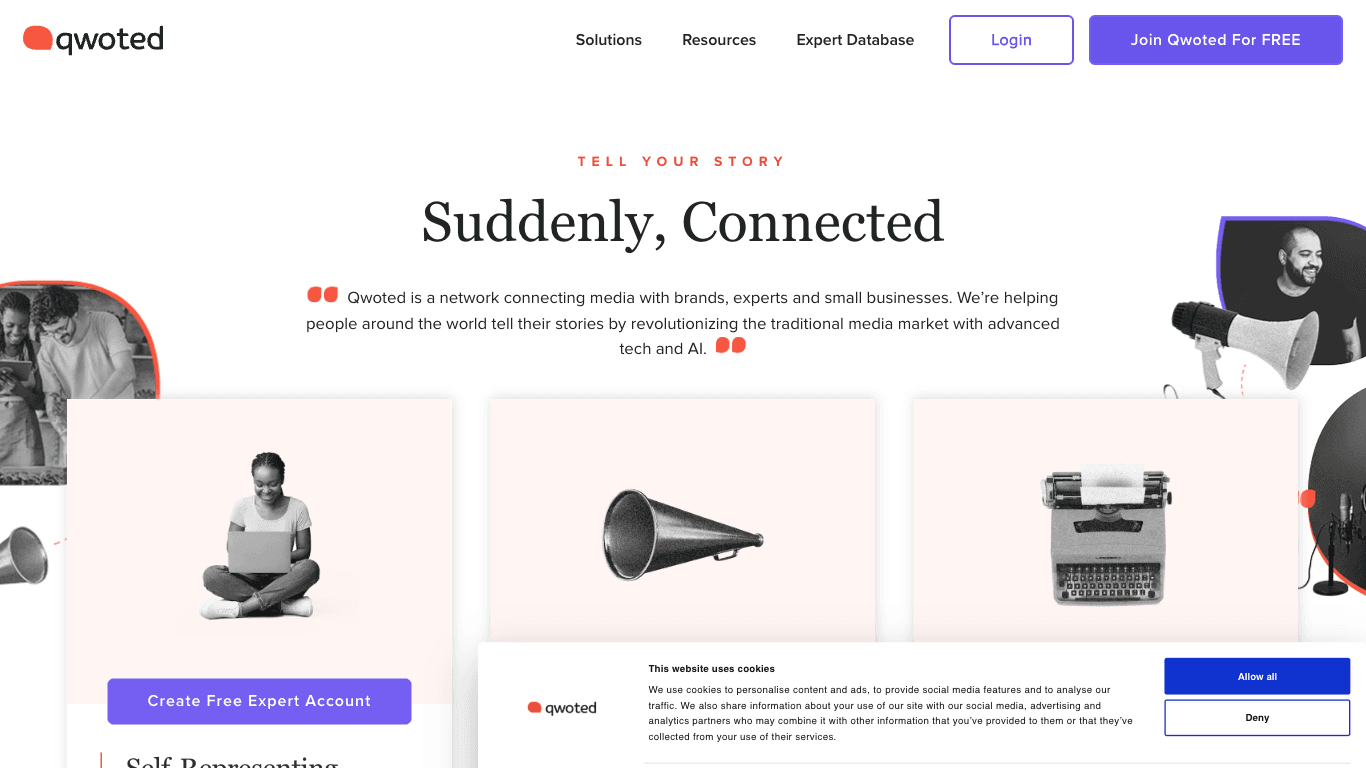
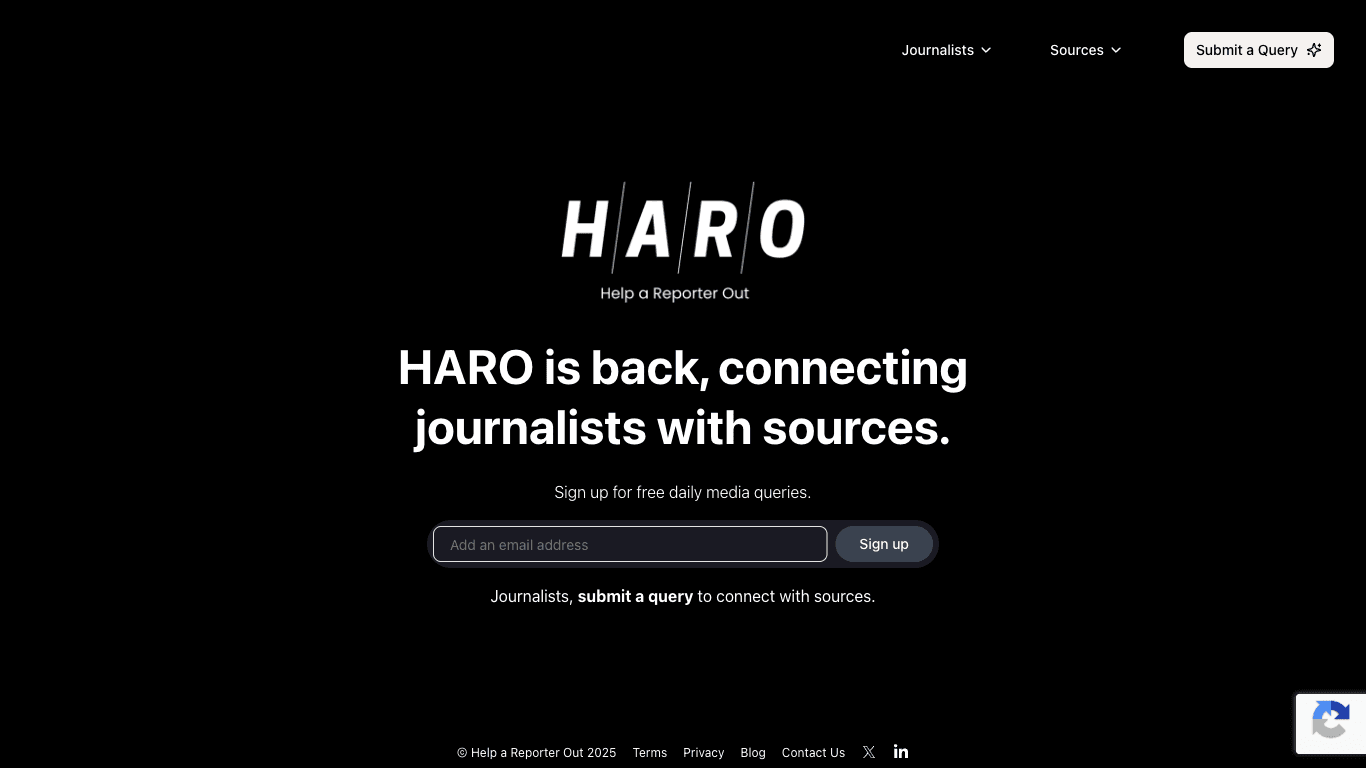
Here's how it works:
- Journalists and bloggers submit queries looking for expert sources for their articles.
- You sign up (for free) and receive these queries in your inbox daily.
- When you see a query relevant to your expertise, you send a concise, valuable pitch.
- If the journalist uses your quote, they'll often include a backlink to your website as a citation.
This is a powerful way to get high-authority links from news sites and top-tier blogs that would otherwise be impossible to get.
Mini Case Study #1: The SaaS Founder's HARO Success
An early-stage SaaS founder, "Alex," was struggling to gain traction for his new project management tool. With zero marketing budget, he turned to HARO. He dedicated 15 minutes each morning to scanning the queries. In his second week, he spotted a request from a major tech publication asking for productivity tips from founders. He submitted a unique, actionable tip based on his own methodology.
The Result: His quote was featured in the article with a backlink to his startup's homepage. The article generated over 1,000 referral visitors in the first week, led to 50 new trial sign-ups, and provided a high-authority (DR 85) backlink that significantly boosted his site's credibility in Google's eyes.
Strategy 3: Strategic Guest Posting for Real Engagement
Guest posting involves writing an article for another website in your niche. But let's be clear: we're not talking about spammy, low-quality posts just for a link. The goal is to provide genuine value to another site's audience. When done right, it's a win-win: the host blog gets great content, and you get exposure, referral traffic, and a quality backlink.
Here’s how to do it effectively:
- Find the Right Blogs: Look for blogs that your target customers actually read. Use Google search queries like
or[your topic] + "write for us"
.[your topic] + "guest post" - Focus on Quality: Target sites with strong engagement (comments, social shares) and a good reputation.
- Personalize Your Pitch: Don't send a generic template. Show that you've read their blog and explain the unique value your proposed article will bring to their audience.
Strategy 4: The Power of Niche Edits (Link Insertions)
This is a lesser-known but highly effective tactic. A niche edit, or link insertion, involves finding an existing, relevant article on another website and asking the author to add a link to your resource.
Why does this work? It's much less work for the site owner than publishing a full guest post. You're simply helping them make their existing content even better.
The key is to find the perfect context. Look for articles that mention a concept you've explained in-depth or a problem your product solves, but don't currently link out to a good resource for it. Your outreach email can be as simple as:
"Hey [Name], I was just reading your excellent article on [Topic]. I noticed you mentioned [Concept], and I recently published a detailed guide on that very thing here: [Your URL]. It might be a valuable addition for your readers. Cheers!"
Strategy 5: Master Broken Link Building
The internet is full of dead links. Broken link building is the process of finding these broken links on other sites, creating a resource that can replace the dead one, and then notifying the site owner.
It's a brilliant strategy because you're not just asking for a favor; you're helping them fix an error on their website.
Here's the simple process:
- Find a relevant, authoritative website in your niche.
- Use a tool like Ahrefs' Broken Link Checker to scan their site for dead links.
- See if you have an existing resource that would be a perfect replacement. If not, consider creating one.
- Reach out to the site owner, let them know about the broken link, and gently suggest your resource as a replacement.
Strategy 6: Create Your Own Original Research or Data
As mentioned earlier, creating unique, data-backed content is one of the most reliable ways how to get quality backlinks. You don't need a massive budget for this. Consider:
- Surveying your email list or social media followers on a niche topic.
- Analyzing public data and presenting it with a unique angle relevant to your industry.
- Aggregating and curating stats from various sources into one comprehensive resource.
Once you publish your findings, you have a powerful asset to share with journalists, bloggers, and other creators in your space.
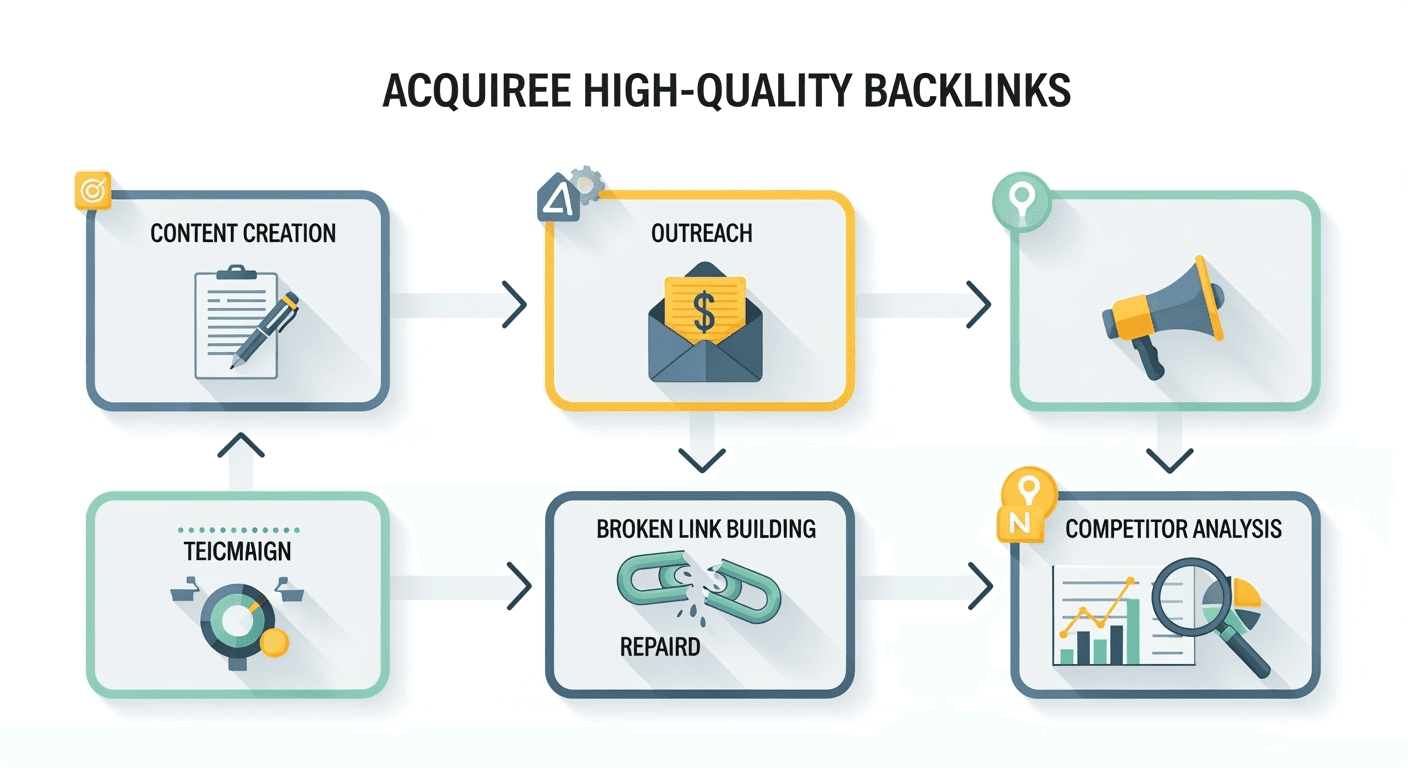
A Comparison of Backlink Strategies for New Products
Feeling overwhelmed by the options? It's all about choosing the right tool for the job. Here’s a quick comparison to help you decide where to focus your energy first.
| Strategy | Effort Level | Cost | Potential Impact | Best For... |
|---|---|---|---|---|
| Community Launch | Low | Free | Medium-High | Gaining initial traction, feedback, and natural links. |
| Digital PR (HARO) | Medium | Free | High | Securing high-authority links from news/media sites. |
| Guest Posting | High | Free | Medium-High | Building relationships and establishing thought leadership. |
| Broken Link Building | Medium | Free | Medium | Finding quick wins by helping other site owners. |
| Original Research | High | Low-Medium | Very High | Creating a long-term asset that attracts links passively. |
The Mindset Shift: From "Building Links" to "Earning Links"
Here’s what I’d tell a friend over coffee: stop thinking about "building" links. That word implies a transactional, almost mechanical process. Instead, focus on earning links.
You earn links when you:
- Create the best resource on a given topic.
- Build a product that people genuinely love and want to talk about.
- Develop real relationships with other creators in your space.
- Help journalists and bloggers by providing them with valuable insights.
When you shift your mindset to one of value creation and relationship building, getting quality backlinks becomes a natural byproduct of doing great work. It's not a tactic; it's an outcome. This is the core philosophy that separates sustainable SEO success from short-term tricks.
Putting It All Together: Your First Launch with ShipSquad
Let's bring this all back to that launch day feeling. You have an amazing product, but you're starting from scratch with no audience and no domain authority. How do you bridge that gap and get the early momentum you need?
This is precisely the problem that inspired the creation of ShipSquad. Traditional launch platforms can feel like shouting into a void if you don't already have a following, and they often do little for your long-term SEO.
ShipSquad is different. It’s a free platform designed for indie builders to launch products, get discovered by a passionate community of early adopters, and earn those critical first quality backlinks. It’s built on the principle of mutual support—makers helping makers. By launching on a platform like ShipSquad, you're not just hoping for a one-day spike in traffic. You're planting the seeds for long-term growth by getting your product in front of people who are most likely to share, review, and link to it.
Mini Case Study #2: "Maker Jane's" Successful Launch
"Jane," a solo developer, created a simple but brilliant note-taking app. She had no marketing budget and a Twitter account with 50 followers. Instead of a quiet launch, she decided to list her app on a community platform like ShipSquad.
The Result: The community loved the app's simplicity. Within a week, she received over 200 upvotes and detailed feedback from 30 users. More importantly, three indie tech bloggers who frequented the platform discovered her app and featured it in their weekly roundups. These three high-relevance backlinks led to a steady stream of organic traffic and helped her app start ranking for its target keywords within two months. This is a perfect example of how to get quality backlinks through community engagement.
Learning how to get quality backlinks is one of the highest-leverage activities you can focus on as an early-stage founder. It’s the gift that keeps on giving, delivering traffic, credibility, and customers long after your launch day has passed.
Ready to get your product in front of early adopters and start earning the backlinks you deserve? Check out ShipSquad — it’s free to launch!
Recommended Videos
- How to Get Backlinks in 2025 (7 NEW Strategies) - A great overview of modern link-building tactics from Brian Dean.
- Link Building for Beginners: Complete Guide to Get Backlinks - An in-depth, step-by-step guide from the team at Ahrefs.
Conclusion: Your Journey to Authority Starts Now
Navigating the world of SEO and figuring out how to get quality backlinks can feel daunting, especially when you're also trying to build a product. But it doesn't have to be complicated or expensive.
By focusing on creating genuine value, building real relationships, and leveraging community-powered platforms, you can lay a powerful foundation for your product's success. The strategies we've covered—from Digital PR and strategic guest posting to community launches—are all designed to help you earn the trust of both users and search engines.
Remember, every quality backlink is more than just an SEO signal. It's a vote of confidence, a channel for new customers, and a stepping stone toward building a sustainable, long-term business. Now go out there and start earning the recognition you deserve.
Frequently Asked Questions (FAQs)
1. How many backlinks do I need to rank?
There's no magic number. It's less about the quantity and more about the quality and relevance of the links. A handful of high-authority, relevant backlinks can be far more impactful than hundreds of low-quality ones. Focus on acquiring good links consistently over time.
2. How long does it take to see results from backlinking?
SEO is a marathon, not a sprint. It can take anywhere from a few weeks to several months to see a significant impact from new backlinks, as search engines need time to crawl, index, and re-evaluate your site's authority.
3. Are paid backlinks a good idea?
No. Buying backlinks is against Google's guidelines and can lead to severe penalties, including having your site removed from search results. Focus on earning links through the white-hat strategies outlined in this guide.
4. What's the difference between a dofollow and nofollow link?
A "dofollow" link passes SEO authority (or "link juice") from the linking site to yours, which directly helps with rankings. A "nofollow" link has a tag that tells search engines not to pass authority. While dofollow links are more valuable for SEO, nofollow links from high-traffic sites can still provide valuable referral traffic and brand exposure.
5. How can I track my backlinks?
You can use tools like Google Search Console (which is free) to see a list of websites linking to you. For more detailed analysis, including the authority of the linking sites and new/lost backlinks, paid tools like Ahrefs, Semrush (https://www.semrush.com/), or Moz are the industry standard.
6. Is it still possible for a new website to get quality backlinks?
Absolutely! While it requires effort, new websites can earn quality backlinks by creating exceptional content, leveraging digital PR tactics like HARO, engaging in communities, and being strategic with outreach. Everyone starts from zero.